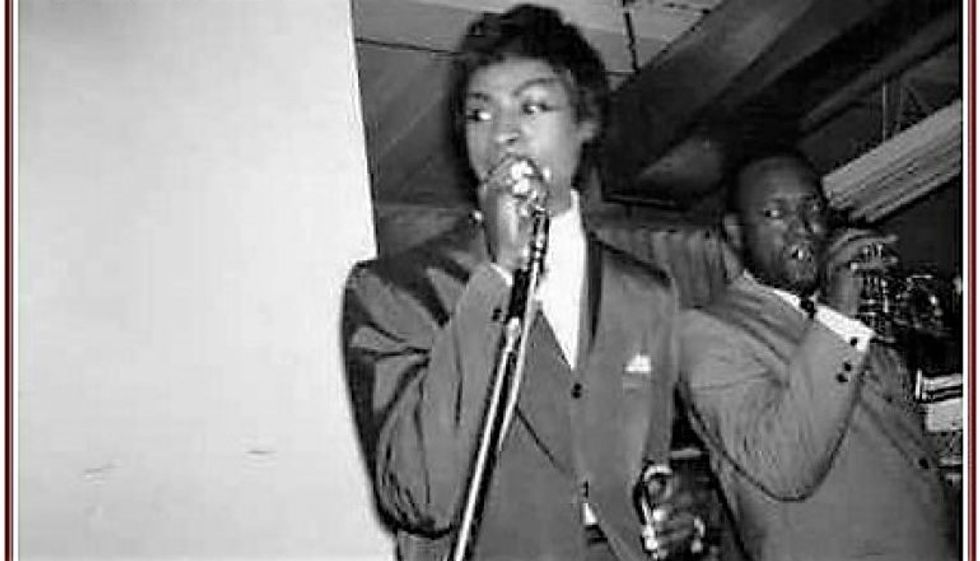RIP: Jackie Shane
It is with great sadness that I found out that an icon of Toronto’s dynamic 1960s R&B scene, soul singer extraordinaire Jackie Shane, passed away Tuesday, February 19th.

By External Source
It is with great sadness that I found out that an icon of Toronto’s dynamic 1960s R&B scene, soul singer extraordinaire Jackie Shane, passed away Tuesday, February 19th. I had called Jackie repeatedly on Wednesday and Thursday and was alarmed when there was no answer as Jackie didn’t go out and always answered her phone. Thursday afternoon I phoned a friend of Jackie’s who regularly helped her out by taking her to the grocery store and the bank. He said he would check up on her. Later that afternoon he found Jackie dead inside her home. The music world lost a great artist emerging out of obscurity after 46 years. I lost a dear friend who was unlike anyone else that I will ever meet.
Jackie was an incredibly warm, smart, funny, loving and insightful human being. She had not wanted to be rediscovered, but when it happened, she continually told me how humbled she was by the fact that so many people remembered her music and loved who and what she was. When a 22-story mural appeared on the east side of Yonge Street a couple of years ago with seven Toronto icons emblazoned on it Jackie was squarely in the middle, I sent her a photo of her image on the mural. She promptly framed it after telling me how awed and incredibly moved she was that such a thing existed.
I assume that most people reading this know the basic story. Born in Nashville in 1940, as a thirteen-year-old boy Jackie told her mother that she was a woman in a man’s body. Her mother, who she always referred to as “mama,” was a remarkable woman who was totally accepting and supportive. In 1953 in Nashville that was a pretty radical stance.
Jackie left Nashville, singing in the “Soul Tent” of a carnival to escape the Jim Crow racism of the time. After a week In Cornwall with the carnival, Jackie and the band headed to Montreal. A few months later she hooked up with American expatriate trumpeter Frank Motley and the Motley Crewe at the Esquire Show Bar. Motley, who could play two trumpets at once, already had a following in Montreal, Toronto, Boston and Washington. With “Lil” Jackie Shane in tow, his market value went up considerably.
Jackie first arrived in Toronto with Motley in September 1961 to play the Holiday Tavern at Bathurst and Queen. The early audiences were eighty per cent black and included future Toronto singing greats Eric Mercury and Jay Jackson. Her cover of William Bell’s “Any Other Way” became a Toronto anthem in the spring of 1963, rising to #2 on CHUM-AM, leading many white Torontonians to discover her. Four years later she recorded one of the greatest live soul albums of all-time at the Sapphire Tavern. The album included extended versions of Barrett Strong’s “Money” and Bell’s “Any Other Way,” both of which clock in at close to 10 minutes each due to Jackie’s impassioned monologues in the middle of each song.
The monologues soon became a signature part of her shows, something audience members would wait for each set. A brilliant ad-libber who was never afraid to speak her mind and, at the same time, play with the audience, Jackie would use the monologues to draw the audience closer to her, while the band vamped for minutes on end creating nearly unbearable tension, all the while keeping audiences spellbound. More often than not, the monologues addressed the age-old issues of sexual politics but, in Jackie’s case, those politics focused on issues pertinent to both gay and straight people in a way that most people would have never heard at the time and, frankly, in most contexts don’t hear now.
In December 1971, Jackie abruptly left Toronto, deliberately not wanting to be found. For years, rumours swirled around about her fate, many people assuming that she was dead.
In 2010 Elaine Banks produced a radio documentary for CBC on Jackie that led an intrepid British fan to track the reclusive singer down. Through a complicated sequence of events, Numero Group inked a deal with Jackie to reissue her recorded works on a two-CD set entitled Jackie Shane: Any Other Way. I co-produced and wrote a 22,000-word essay for the liner notes for the reissue, which would be nominated for a Grammy in the Best Historical Album category two weeks ago.
During my career, I have spent extended time with a bevy of fascinating people from Bob Marley to Lou Reed to the Rolling Stones, but getting to know Jackie over 33 hours of recorded interviews and dozens of additional hours of casual conversation is one of the greatest privileges I will ever have. We became close and continued to speak every couple of weeks. My final conversation with Jackie was on my cell from the lobby at the Grammys just after we lost. Her last words to me were, “I am satisfied with the outcome” and "we’ll talk next week." I called one day too late.
– York University’s famous “rock ‘n’ roll professor,” Rob Bowman, has earned six Grammy nominations and in 1996, he won the Grammy for Best Album Notes for his 47,000-word monograph accompanying the 10-CD boxed set of The Complete Stax/Volt Soul Singles, Vol. 3: 1972-1975.

















